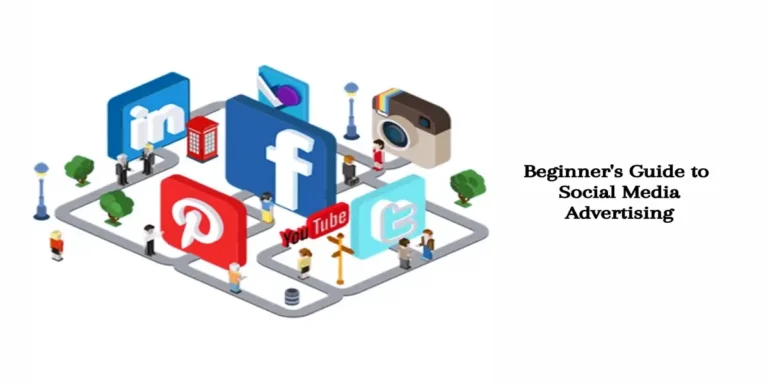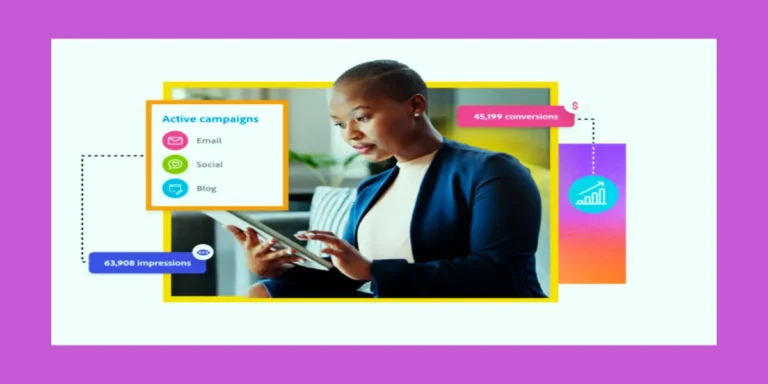How to Leverage Networking for Job Opportunities
In today’s fast-paced, highly competitive job market, standing out from the crowd requires more than just a polished resume and an impressive set of skills. Networking for job opportunities is one of the most powerful tools in your career toolkit. Whether you are an experienced professional or just starting, networking can be the key to unlocking job offers, discovering hidden career opportunities, and gaining valuable industry insights that you won’t find through traditional job search channels.
Unlike simply applying to job postings, networking builds real, personal connections that could eventually lead to a job offer. The truth is, that many job openings, especially high-level positions are never advertised publicly. They are filled through referrals, recommendations, and personal connections. Networking gives you the edge by putting you in front of the people who matter most, whether it’s a hiring manager, a recruiter, or an influential industry professional.
This guide will provide you with actionable strategies for networking for job opportunities, covering both online and offline networking techniques. You will learn how to attend virtual events, optimize your social media presence, and make meaningful connections that can directly lead to career opportunities. By the end of this article, you’ll be equipped with the tools to take your networking game to the next level, ensuring that you stand out and create lasting, fruitful relationships.
What is Networking for Job Opportunities?
At its core, networking for job opportunities is about building relationships that help you navigate the job market. Networking can connect you with hiring managers, potential mentors, peers in your industry, and even people who can give you insider knowledge on organizations you’re interested in. Unlike traditional job applications, which are often competitive and impersonal, networking puts you at the forefront of people’s minds when opportunities arise.
Networking isn’t just about gaining referrals or job leads; it’s also about staying informed and learning from others in your field. Often, networking relationships extend well beyond a simple job search, providing access to ongoing career guidance, industry developments, and collaborative opportunities.
What is the Role of Networking in Career Development?
Networking is integral to career development. Building a network of professionals allows you to tap into a wealth of knowledge, insights, and opportunities. When you expand your network, you gain access to people who can introduce you to job openings, offer advice on your career path, or even give you mentorship. It’s not just about finding a job; it’s about building long-term relationships that can help shape your career trajectory.
For example, a marketing professional might meet someone at a networking event who introduces them to a company with a marketing director opening. A few months later, the same individual might offer advice about how to position oneself for a senior role. Over time, you build a career path, and your network plays a key role in that development.
Best Practices for Networking: Offline and Online
Here are some of the most important best practices for networking for job. I have outlined these for both offline and online networking.
Offline Networking: – Building Personal Connections:
While online networking tools are growing in importance, face-to-face connections still hold immense value. Offline networking is crucial because it allows for direct, personal interaction, creating bonds that are often stronger and more authentic. Whether you’re attending a conference, an industry meet-up, or a casual coffee with someone in your field, offline networking offers the chance for genuine conversation and deeper connections.
For instance, imagine you attend a local industry networking event and, during a conversation with an attendee, discover that they work at your dream company. As you talk, you learn about an internal position that is yet to be advertised. By keeping that conversation going, you’ve unlocked a potential opportunity that you wouldn’t have found on a job board.
Here are some best practices for effective offline networking:
- Be Prepared: Have a well-crafted introduction and elevator pitch ready. Be able to explain what you do and what kind of opportunities you’re looking for in a concise and engaging way.
- Listen Actively: Networking isn’t just about talking about your skills or career ambitions; it’s about listening. Ask thoughtful questions about the other person’s work and experiences. This shows genuine interest and can make the conversation feel more natural.
- Follow Up: After meeting someone offline, always follow up with an email or LinkedIn connection. Reinforce what you discussed and express your interest in keeping in touch.
Online Networking: Using Digital Tools to Your Advantage
Online networking is an indispensable tool in today’s job market. Websites like LinkedIn, Twitter, and industry-specific forums offer endless opportunities to connect with professionals from around the world. You can research companies, follow industry leaders, and engage in meaningful conversations without leaving your home.
For example, LinkedIn’s features such as profile endorsements, shared content, and direct messaging allow for interactions that can lead to real job offers. By actively engaging on LinkedIn, posting industry-related content, and commenting thoughtfully on others’ posts, you raise your profile and make it easier for recruiters to find you. You can check our previous article on Building a Strong LinkedIn Profile for Career Advancement
Here’s how to use LinkedIn for job networking:
- Profile Optimization: Make sure your LinkedIn profile is complete, professional, and showcases your skills and achievements. A strong profile will make you more visible and increase your chances of being found by recruiters.
- Personalized Connection Requests: When sending connection requests, always personalize the message. Mention why you’re interested in connecting and how you can offer value to them.
- Engage and Contribute: Don’t just passively accept connections; engage with others by sharing valuable content, commenting on posts, and offering insights in your field. Thoughtful engagement helps build credibility and establishes you as an expert in your field.
Networking Tips for Effective Job Search
1. Start with Your Current Circle
Your existing network is a great place to start when job networking. Reach out to friends, family members, and former colleagues to let them know that you’re seeking new career opportunities. Often, the people closest to you will be more willing to help or connect you to someone who can. Even if they don’t have direct job leads, they may know others who do.
For example, a job seeker might inform a friend about their job search and, in turn, the friend might introduce them to a hiring manager in their own company. This simple connection could lead to an interview and, eventually, a job offer. Never underestimate the power of your personal circle.
2. Be Genuine and Offer Value
Networking is not a transaction; it’s about building meaningful relationships. People are more likely to help you if you have genuinely engaged with them. Instead of simply asking for job leads, offer something of value. This could be sharing relevant resources, providing feedback, or offering your expertise on a subject they’re interested in.
For example, if someone in your network is struggling with a work-related issue that you have experience with, offer advice or a solution. This will foster goodwill and make them more likely to remember you when an opportunity arises. Being helpful and supportive builds trust, which is essential in networking.
3. Follow Up and Stay Consistent
Following up is a key step that many people overlook. After meeting someone or connecting online, send a follow-up message thanking them for their time and reiterating your interest in staying in touch. Consistency is also important—don’t let your networking efforts fizzle out after one interaction. Continue to engage with your connections, whether through regular emails, LinkedIn updates, or even occasional check-ins.
Remember, networking is a long-term game. By staying consistent, you ensure that you remain top of mind when a potential job opportunity arises.
How do you Utilize Social Media for Job Networking
1. Leveraging LinkedIn for Professional Connections: LinkedIn remains the top platform for professional networking. To make the most of LinkedIn:
- Profile Optimization: Ensure your LinkedIn profile is polished. This means having a professional photo, a clear headline, and an impactful summary that explains who you are, what you do, and what you’re looking for. Highlight your accomplishments and skills in a way that will resonate with recruiters.
- Active Engagement: Don’t wait for recruiters to come to you—engage actively by sharing relevant industry content, commenting on posts, and joining LinkedIn groups. Participating in these discussions can help you expand your network and increase your visibility.
- Direct Messaging: Don’t hesitate to reach out to professionals you’re interested in connecting with. Craft a thoughtful, personalized message explaining why you’d like to connect and how you can potentially collaborate. Be respectful and avoid a “hard sell” approach.
2. Engaging on Twitter and Other Social Platforms: Twitter can be an excellent platform for job networking in specific industries like tech, marketing, and media. Join conversations in your field by following hashtags, retweeting relevant content, and engaging with thought leaders. Many companies now use Twitter as a way to showcase their culture and share job openings. By staying active and engaging with company accounts, you could become more visible to potential employers.
3. Also, platforms like Slack or Reddit can offer niche communities where professionals in specific industries gather to share knowledge and job opportunities. By contributing meaningfully to these groups, you’ll increase your chances of being referred for positions.
Attending Virtual Events for Networking: How Virtual Networking Events Differ from In-Person Events
Virtual events provide new and exciting opportunities for networking. Unlike physical events, which may limit your interactions to people within the same geographic location, virtual events allow you to connect with people from around the world. However, virtual events also require a different approach to networking. It’s important to make your presence known and engage actively to stand out in a crowded digital environment.
Maximizing Your Experience at Virtual Events
Here’s how to make the most of a virtual networking event:
- Prepare in Advance: Know who will be attending, and research key speakers or companies before the event. This allows you to make more targeted connections.
- Engage in Real-Time: During webinars or panel discussions, ask insightful questions in the chat or Q&A section. This not only shows you’re engaged but gives you a chance to be noticed by the speakers and attendees.
- Use Breakout Rooms: Many virtual events have breakout sessions or smaller group discussions. Use these opportunities to engage with others, ask questions, and share ideas. This is your chance to make a lasting impression.
Turning Networking Connections into Job Offers
Once you’ve built meaningful relationships, the next step is to transition from networking to actively seeking job opportunities. Be specific about what you’re looking for, but do so in a way that respects the person’s time and position. You might ask for advice on breaking into a particular industry or inquire about openings that align with your skill set.
Best Practices for Asking for Help Without Being Pushy
When you’re ready to ask for help, be clear about your goals but respectful. Let your contact know that you value their time and appreciate any guidance or recommendations they can offer. This approach keeps the conversation professional and courteous, making it more likely that the person will be open to helping you.
Follow-Up and Maintaining Relationships Post-Job Search
Once you’ve landed a job, don’t forget to thank your connections for their support. Keeping these relationships intact can lead to future opportunities. Continue to engage with your network even after you’ve secured a job by sharing updates, congratulating others on their achievements, and offering your help when needed.
How To Overcome Common Networking Challenges
Overcoming Introversion and Fear of Rejection: For introverts, networking can be particularly challenging. However, it’s important to understand that networking doesn’t have to be a loud or outgoing activity. Start small by attending smaller events or setting one-on-one meetings with people you feel comfortable with. Remember, quality connections are more important than quantity.
How to Handle Networking Fatigue: Networking can sometimes feel overwhelming, especially if you’re constantly attending events, sending messages, and following up. If you start to feel burnt out, take a short break to recharge. Focus on building a few deep relationships rather than stretching yourself thin. Over time, quality will matter more than quantity.
Some Real-Life Examples of Networking Success
Consider a job seeker named Miley, who was transitioning from a career in education to a corporate training role. By attending an industry conference and connecting with key speakers, he ended up landing an interview after a thoughtful follow-up email. His proactive networking efforts paid off when one of the speakers recommended him to their company for an open position.
Networking is not a one-time event but an ongoing practice. The more consistent and authentic your efforts are, the more successful your job networking will be.
My Final Thoughts on Networking for Job Opportunities
To leverage networking for job opportunities effectively, start by engaging with your current network, offering value, and following up consistently. Utilize both online and offline channels, attend events, and engage with people who can help you grow. By taking a strategic and authentic approach, you can significantly enhance your job prospects.
Networking is an investment in your career. By continuously building and nurturing relationships, you create opportunities that will not only help you land a job but also support you throughout your entire career. Start networking today, and watch how it transforms your career path for the better.







